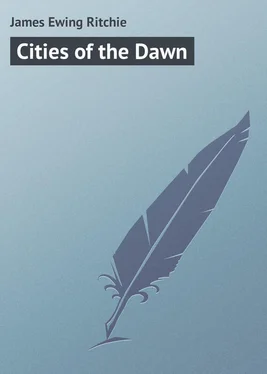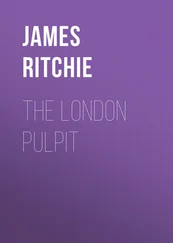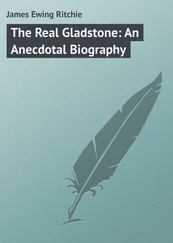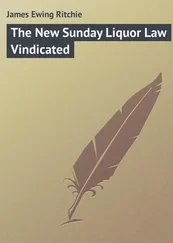James Ritchie - Cities of the Dawn
Здесь есть возможность читать онлайн «James Ritchie - Cities of the Dawn» — ознакомительный отрывок электронной книги совершенно бесплатно, а после прочтения отрывка купить полную версию. В некоторых случаях можно слушать аудио, скачать через торрент в формате fb2 и присутствует краткое содержание. Жанр: foreign_prose, foreign_language, на английском языке. Описание произведения, (предисловие) а так же отзывы посетителей доступны на портале библиотеки ЛибКат.
- Название:Cities of the Dawn
- Автор:
- Жанр:
- Год:неизвестен
- ISBN:нет данных
- Рейтинг книги:3 / 5. Голосов: 1
-
Избранное:Добавить в избранное
- Отзывы:
-
Ваша оценка:
- 60
- 1
- 2
- 3
- 4
- 5
Cities of the Dawn: краткое содержание, описание и аннотация
Предлагаем к чтению аннотацию, описание, краткое содержание или предисловие (зависит от того, что написал сам автор книги «Cities of the Dawn»). Если вы не нашли необходимую информацию о книге — напишите в комментариях, мы постараемся отыскать её.
Cities of the Dawn — читать онлайн ознакомительный отрывок
Ниже представлен текст книги, разбитый по страницам. Система сохранения места последней прочитанной страницы, позволяет с удобством читать онлайн бесплатно книгу «Cities of the Dawn», без необходимости каждый раз заново искать на чём Вы остановились. Поставьте закладку, и сможете в любой момент перейти на страницу, на которой закончили чтение.
Интервал:
Закладка:
Of course the summer is the bad time for the crater. In the season Cook has his pilgrims, sometimes to the number of 200 a day. The cars are airy and light. As one goes up, another descends, and thus the work goes on under the care of an able German, who caught a fever in Egypt, and has been ordered here for the benefit of his health. The whole country should be called Cooksland. It is there John Cook reigns supreme. Just as I was leaving London a Leicester gentleman said to me: ‘I wonder Mr. Gladstone did not make John Cook a baronet.’ ‘The man who does what Mr. Cook does, for all travellers, whatever their nationality, surely deserves public recognition,’ says a commercial Dutchman to me as I write; ‘I am off to Palermo and Catana and Messina. I have taken Cook’s tickets for all the way.’
I found in my subsequent travels every one of us had more or less to enjoy the assistance of Cook’s agents. In many cases travellers derive great pecuniary benefit from doing so. I remember a friend of mine got some money changed for him by Cook’s agent on very much cheaper terms than he could anywhere else.
Italy is a poor country; yet it displays a sense of humour highly creditable under the circumstances. The site of the Custom House in Naples is locally known as the Immaculate.
CHAPTER V
THE ISLES OF THE MEDITERRANEAN
Remember, as the great Dr. Johnson remarks, how life consists not of a series of illustrious actions or elegant enjoyments; the greater part of our time passes in compliance with necessities in the performance of daily duties, in the procurement of petty pleasures; and we are well or ill at ease as the main stream of life glides on smoothly, or is ruffled by small obstacles and frequent interruptions. This is emphatically true as regards life at sea. But as we steam along we see much to attract and excite in the isles of the Mediterranean, that diversify the travel all the way from Marseilles to Jaffa. It is said that there are eighty ports in the Mediterranean, and that into all of them Lord Brassey can take his yacht without a pilot. Alas! I am permitted to tarry at none of them.
As we sail out of the Bay of Naples we pass Capri – a rocky island, where there is scarce a yard of level ground – dear to Englishmen and artists. The highest point of Capri is about 1,960 feet above the sea. The traveller will find there several hotels. Roman remains abound, and Tiberius, the drunken and dissolute, had twelve palaces there. There he was in no fear of unwelcome intrusion, and gave himself up to shameless and unnatural lusts; while his worthy lieutenant, Sejanus, carried on a series of persecutions against all who stood in any relation to the imperial family, or excited the suspicions of the tyrant by freedom of speech, independence of character, or position, or popularity. The famous Blue Grotto of Capri is on the northern side, near the landing. In the great war with France, Sir Hudson Lowe – the same General who had subsequently charge of Bonaparte at St. Helena – had to surrender the island to Murat, after a fortnight’s siege, and had the mortification of seeing reinforcements arrive just after the treaty was signed. Leaving Capri, the Gulf of Salerno opens; Pæstum, with its temples, lying on the southern bight of the gulf. Then follows the elevated headland of Cape Palinure – named after Palinurus, the pilot of Æneas, whose tomb is marked by a tower on the cliff some eight miles northward, thus fulfilling the Sibyl’s promise in the ‘Æneid,’
‘And Palinurus’ name the place shall bear.’
We next get a peep at the now active volcano of Stromboli, and the Lipari Islands to the northward. On these islands, the Insulæ-Eoliæ, also the Vulcaniæ of the ancients, Æolus held the winds enclosed in caverns, letting them blow and howl as it seemed good in his sight. There, too, Vulcan forged the bolts of Jove.
From Naples we steer for Sicily, once, though only for a short time, prosperous under British rule, when we took possession of it in the name of the King of Naples, after he was driven away from Italy by the soldiers of France. Garibaldi handed it over to United Italy. Sicily is a country which is almost unknown to tourists, though in his youth Mr. Gladstone visited the island and wrote: ‘After Etna, the temples are the great charm and attraction of Sicily. I do not know whether there is any one, if taken alone, which exceeds in interest and beauty that of Neptune at Pæstum, but they have the advantage of number and variety as well as of interesting position.’ We pass Catania, which had the most celebrated University in Italy. The present town is comparatively new; many of its more ancient remains are covered with lava; among them the theatre, from which it is probable Alcibiades addressed the people in b. c. 415. What memories rose up before us as we steamed along the Straits of Messina! It was from Syracuse that St. Paul sailed away to Reggio, on the coast of Italy, and all the parsons on board pull out their Testaments and compare notes. I trow I know more of the Greeks, and Romans, and Carthaginians, who shed so much blood, and waged so many desolating wars in these now peaceful regions. The town was founded by the Greeks nearly 3,000 years ago. All the nations seem at one time to have held Sicily – Romans, Greeks, Moors, Turks, and Normans. There are some of us who can yet remember how Cicero thundered against Verres for his misgovernment of Sicily. It was to Sicily that Æschylus retired to die after Sophocles had borne away the prize from him for his tragedy. The pet of the Athenian mob, the gay and graceful Alcibiades, fought against the Sicilians in vain. At that time they must have been a more intelligent people than they are now. Take, for instance, their appreciation of Euripides. Of all the poets, writes old Plutarch, he was the man with whom the Sicilians were most in love. From every stranger that landed in their island they gained every small specimen or portion of his works, and communicated it with pleasure to each other. It is said that on one occasion a number of Athenians, upon their return home defeated, went to Euripides and thanked him for teaching their masters what they remembered of his poems; and others were rewarded when they were wandering about after the battle, for singing a few of his verses. Nor is this to be wondered at, since they tell us that when a ship from Cannes, which happened to be pursued by pirates, was going to take shelter in one of their ports, the Sicilians at first refused to receive her. Upon asking the crew whether they knew any of the verses of Euripides, and being answered in the affirmative, they released both them and their vessel. We are a cultured people. The Americans, according to their own ideas, are yet more so. Yet it is evident that the Sicilians were far before us in their admiration of poetic genius. Alas! Pompey the Great, as we still call him, gave the Sicilians a different lesson when he summoned the people of Messina before him, who refused to obey his summons, arguing that they stood excused by an ancient privilege granted them by the Romans. His reply was, and it was worthy of the present Emperor of Germany, ‘Will you never have done citing laws and privileges to men who wear swords?’ Another lesson Sicily teaches us is how much readier the world is to remember its oppressors than its benefactors. We all have a vivid impression of Dionysius, the Tyrant of Syracuse, yet how few of us are familiar with the fame of Dion the Patriot, who was the pupil of Plato when the philosopher dwelt for a time in Syracuse. It is to the credit of the Sicilians that they were a grateful people. When Timoleon died they gave him a public funeral, and instituted games in his honour, ‘as the man who destroyed tyrants, subdued barbarians, repeopled great cities which lay desolate, and restored the Sicilians their laws and privileges.’
Читать дальшеИнтервал:
Закладка:
Похожие книги на «Cities of the Dawn»
Представляем Вашему вниманию похожие книги на «Cities of the Dawn» списком для выбора. Мы отобрали схожую по названию и смыслу литературу в надежде предоставить читателям больше вариантов отыскать новые, интересные, ещё непрочитанные произведения.
Обсуждение, отзывы о книге «Cities of the Dawn» и просто собственные мнения читателей. Оставьте ваши комментарии, напишите, что Вы думаете о произведении, его смысле или главных героях. Укажите что конкретно понравилось, а что нет, и почему Вы так считаете.












